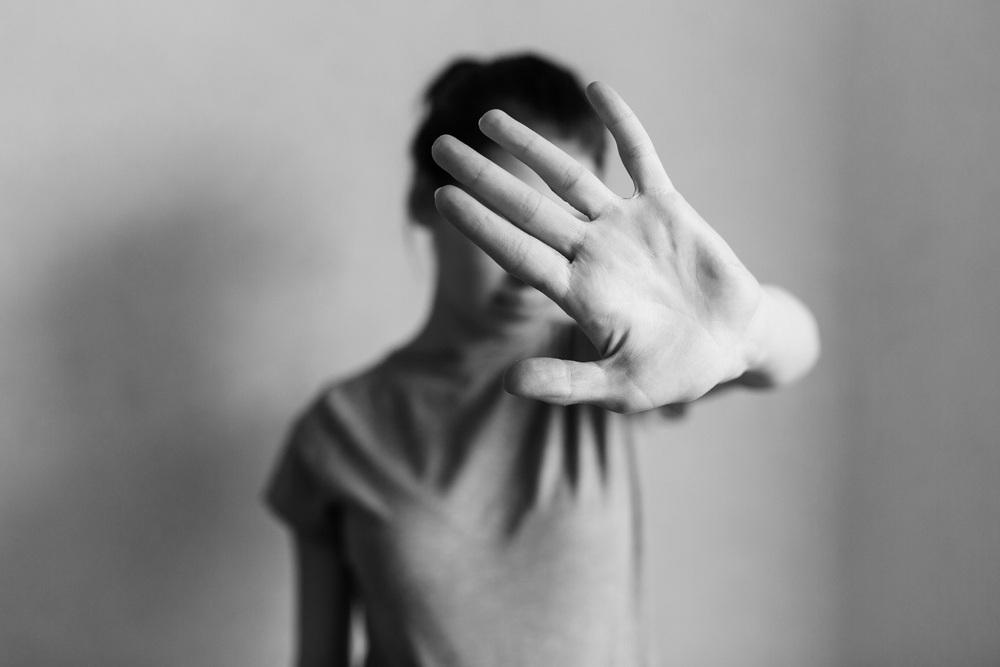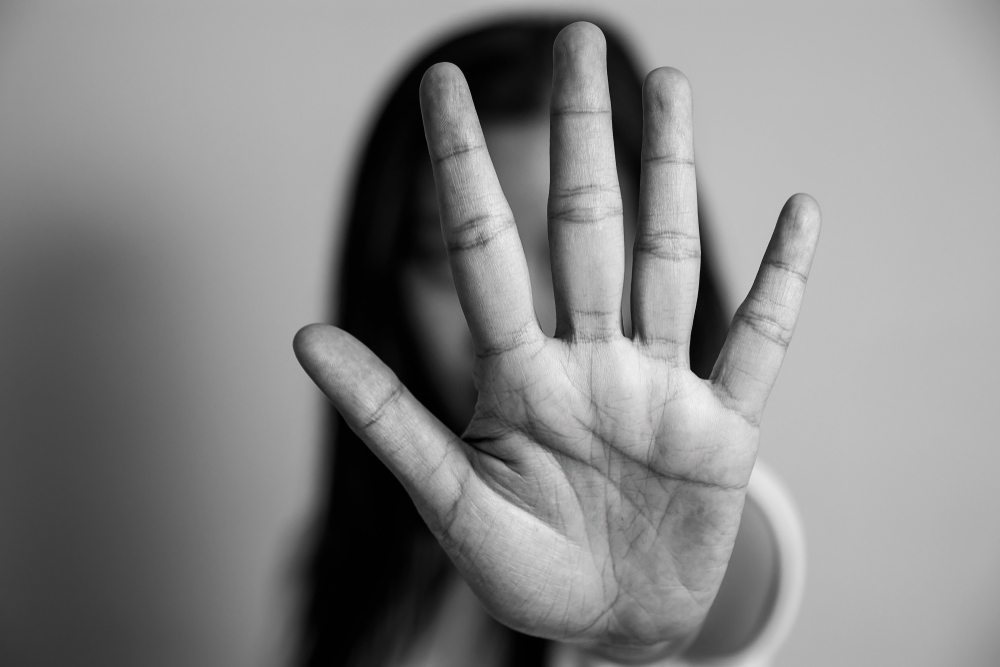As a parent, you do everything possible to protect your child from harm. But the terrible reality is that a predator may still target and harm your child even when you do everything right. The organizations and people you trust to care for or watch over your child may act in a way that allows this abuse to occur, whether due to oversight, apathy, or worse. When a person or organization caring for your child fails to protect them from abuse, they may be held responsible.
Sexual abuse is a traumatic experience for your child and family, with the potential for lifelong impacts and ramifications on your child’s development and future. If you believe your child is a victim of sexual abuse, act quickly to protect them from further harm and contact a sexual abuse attorney to hold the party or parties that facilitated the abuse accountable under the law.
Reassure Them and Keep Them Safe
Your suspicion that abuse is occurring or has occurred may come up after speaking with your child. Your child may be in fear of the consequences of you discovering the abuse or because they spoke up.
Often abusers will make threats regarding family and friends to keep their victims quiet. This is an emotional and scary time for your child, and you should reassure them as best you can that they are safe from further harm. If your child remains at risk of harm from the party you believe is responsible due to their daily activities, you should remove your child from that situation immediately.
Contact the Authorities
Whether the abuse is current or something that occurred in the past, you should call the authorities in your jurisdiction to report the abuse and identify the culprits you believe are responsible for the sexual abuse of your child.
Once you report the abuse, the authorities will determine how and if they can proceed with criminal charges against the parties responsible.
Get Your Child Professional Support
The trauma of sexual abuse can have widespread effects on your child. The sooner you can get your child professional mental health support and counseling, the sooner they can begin to heal alongside you and your family.
Sexual abuse is a difficult matter, and having the right people with experience handling such challenging and horrific issues can help your child and your family through this time. In West Michigan, the Children’s Advocacy Center and YWCA are amazing resources. Both organizations can connect you with the resources to help children who have suffered abuse and their families.
Beyond the abuse itself, navigating the aftermath of sexual abuse can add to your child’s stress and trauma. Having professional support in place from the outset to guide your child through the process can help them manage their feelings and fears as challenges arise.
Call a Sexual Abuse Lawyer to Discuss Your Legal Options
A personal injury attorney with experience handling sexual abuse cases can help you determine what legal options may be available on your child’s behalf. A sexual abuse lawyer can provide you with a free consultation to discuss the specifics of your child’s case and what, if any, recourse you may have in civil court for compensation of your child’s damages.
Sexual abuse cases involve sensitive subject matter. You will want to find a lawyer and sexual abuse law firm in Grand Rapids that understands the complex nature of these sexual abuse cases and can help you and your child with compassion.
Questions a Lawyer Can Help You Within a Sexual Abuse Case
Sadly, sexual abuse is a widespread problem that many children may face. In just one year, investigating agencies found evidence of sexual abuse in cases involving over 57,000 children across the U.S.
You and your child are not alone, and there are laws and protections in place to help you move forward from these terrible circumstances.
Sexual abuse can give rise to complex legal issues. A lawyer can help you understand the nature of sexual abuse cases and how the law applies to your child’s case. These are common questions that parents and victims of sexual abuse may have relating to their case.
Who Could You Hold Responsible for the Sexual Abuse of a Child?
To you and your child, there may be no question as to who caused the sexual abuse. However, the law may interpret liability and responsibility for the abuse to include others you may not have yet considered. The CDC estimates that over 90 percent of child sexual abuse cases involve someone a child knows or someone a parent has entrusted to spend time with or care for their child.
Institutions and organizations such as schools, churches, daycares, camps, sports teams, recreational centers, scout troops, and others have become a part of the day-to-day activities and support system of caring for a child.
Whether parents need support while they work outside the home or a child participates in enrichment activities for their development, children often come under the care of a party other than their parents. However, when sexual abuse occurs during these activities, it is often the result of the organization’s failure to uphold their duty to protect that child. The organization or individual responsible can, in turn, be liable for the damage their failures caused to the abuse victim.
What Is Institutional Liability in Sexual Abuse Cases?
When you drop off your child at activities such as at a church, school, or after-school activities, you are trusting that organization and its employees or volunteers to protect your child from harm and keep them safe.
These organizations must provide your child with a safe space free from the threat of harm and abuse. This duty includes thoroughly vetting and supervising the people they employ, instituting common sense protective policies, and properly caring for and monitoring the children that come through the doors of their institutions.
Institutional liability is a legal principle by which an organization might be responsible for the actions of those under its control, such as employees, volunteers, and contractors that interact with or have access to your child. When an institution is responsible for children, it must have systems in place to protect those children from harm whenever possible.
Failures on the part of an organization to protect the children in their care can make them liable for the harm that arises from their failures. If your child suffered sexual abuse while under the care of an organization or institution, and that establishment did not take the necessary actions to protect your child from harm, you may be able to hold them liable for damages.
Common examples where an institution could be liable for the sexual abuse of a child include:
- Failure to perform adequate background checks when hiring employees
- Ignoring prior complaints or concerns regarding an individual
- Allowing known offenders or those with prior questionable incidents to continue to work with or near children
- Lack of security measures, oversight, or guidelines in place to prevent abuse from occurring
What Is the Difference Between a Criminal and Civil Case Involving Sexual Abuse?
Sexual abuse is a crime. In a criminal prosecution, only the abuser is held accountable under the law, and prosecution may not always be possible or successful. If a criminal prosecution is successful, the court may order that restitution be paid to the victim, but criminal defendants are rarely able to pay any significant amount of money – especially if they are given a lengthy prison sentence.
A civil case regarding sexual abuse is an entirely separate process from anything happening in the criminal courts. In a civil case, a victim of abuse that suffers harm can bring an action for damages they sustain to seek monetary compensation against the party or parties responsible. The claim may be against the perpetrator themselves or anyone else who had a duty to protect the child and failed to do so.
Unlike in a criminal court, an institution can be held liable in civil court for negligence in failing to prevent the sexual abuse of a child perpetrated by an individual under its employ or supervision. Victims have a chance to seek the monetary relief they deserve to compensate them for their traumatic experience and allow them to get the help they need to recover, both now and in the future.
Statute of Limitations in Sexual Abuse Cases
A statute of limitations is the deadline for filing a personal injury lawsuit. Determining the statute of limitations for a civil action arising from a sexual abuse claim is complex and depends on a number of factors. Most victims who were minors at the time of the abuse will have until they reach their 28th birthday to bring a civil suit.
As society continues to reckon with the prevalence of sexual abuse, there has been more effort to extend the statute of limitations even further. The legislature has also created special exceptions in response to specific incidents, such as in the Larry Nassar abuse cases. Even if you think it has been too long since you were abused, check with a lawyer to see if the law has recently changed.
To find out what timeframe you have for filing a lawsuit stemming from sexual abuse, speak with the experienced attorneys at Gruel Mills today. We can help you understand your options and ensure that any claim you wish to pursue is filed before time runs out. Even if you may have years before the deadline, it is best to contact a lawyer as soon as possible so that they can preserve evidence and start working on your behalf as soon as possible.
The Aftermath of Sexual Abuse and Its Impact on Victims

Sexual abuse can happen once or as part of an ongoing pattern over weeks, months, or years. A child sexual abuse victim may not come forward when the abuse occurs out of fear or shame, but may later divulge the abuse.
Over time the effects of sexual abuse can arise in many ways; impacts can include deteriorating school performance, difficulty making or maintaining friendships, development of PTSD, depression, anxiety, and other mental health conditions. A victim may live with and deal with the repercussions of sexual abuse their entire lives.
The Types of Damages Available to Sexual Abuse Victims
Nothing can undo your child’s traumatic experience due to sexual abuse. A civil action for damages, however, can help you seek compensation that will help your child as they attempt to recover and heal; physically, mentally, and emotionally.
Monetary compensation can help you secure your child’s future needs for therapies, medical care, and other challenges that may arise as they grow and develop. A sexual abuse lawyer can help you determine the extent of the losses you can seek in the case on behalf of your child.
Common types of damages in a sexual abuse claim may include:
- Medical expenses, which can include costs for medical care and treatment of injuries and the mental health needs of a child now and in the future;
- Physical, emotional, and mental pain and suffering; and
- Impacts on the child’s development and personal relationships.
How Can You Seek Compensation for Your Child’s Suffering and Damages in a Sexual Abuse Case?
Sexual abuse claims are unique from other personal injury claims. The actions involved in many of these cases are purposeful, malicious, and involve a pattern of ongoing behaviors relating to an individual.
The criminal nature of the actions may result in the punishment of the culprit. However, a civil matter allows you to try to hold all parties accountable and help provide financial security for your child if possible. When you consult with an attorney regarding your sexual abuse case, they can go over what options they believe are in your child’s best interests and may give you the highest chance of success when seeking compensation for your child.
An Insurance Claim
Sexual abuse claims may qualify for coverage under certain insurance policies in situations where an institution may be to blame for the actions of its employees or contractors. In some cases, an attorney working on your child’s behalf may be able to negotiate a successful settlement outside of court through a liability insurance claim.
A Lawsuit
If insurance is unavailable or insufficient, or there are disputes about whether an institution is liable for your child’s damages from sexual abuse, a lawsuit is likely necessary. Your lawyer may file suit against the culprit and the institution responsible for caring for your child to fight for the damages on your child’s behalf.
If your lawyer recommends filing and pursuing a lawsuit, they will help you build and prepare the case for trial. If a trial occurs, either a jury or the judge can ultimately decide who is liable and how much compensation your child may be eligible for under the law.
When Should You Contact a Personal Injury Attorney If You Suspect Sexual Abuse?
Proving sexual abuse cases can present challenges, particularly in cases of institutional liability. The more time passes, the harder evidence becomes to obtain.
As soon as you suspect the sexual abuse of your child, remove them from the situation, contact law enforcement, and call a personal injury lawyer in Grand Rapids to discuss your legal options.

